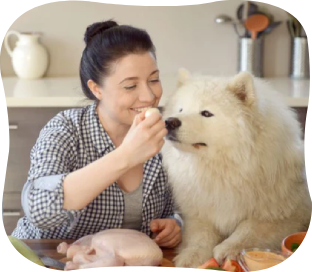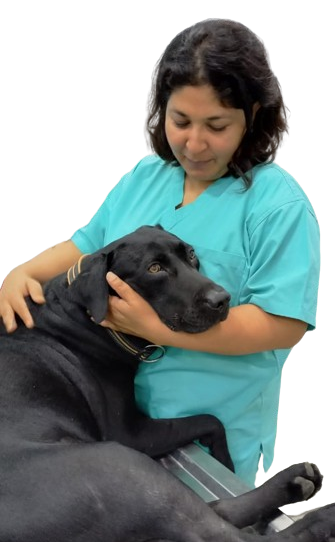- Cooked Meat: Cooked lean meats such as chicken, turkey, beef, or lamb are excellent sources of protein for dogs. Make sure to remove any bones and excess fat before serving.
- Cooked Vegetables: Dogs can enjoy a variety of cooked vegetables, including carrots, green beans, peas, sweet potatoes, and pumpkin. These vegetables are packed with essential vitamins and minerals.
- Plain Rice or Pasta: Plain cooked rice or pasta can be a bland yet filling addition to your dog's meals, especially if they have an upset stomach.
- Eggs: Eggs are a fantastic source of protein for dogs. You can scramble or boil them and serve them plain or mixed with other ingredients.
- Canned Fish: Canned fish such as salmon or mackerel (without added salt or seasoning) can be a tasty and nutritious addition to your dog's diet. These fish are rich in omega-3 fatty acids, which are beneficial for skin and coat health.
- Plain Yogurt: Plain, unsweetened yogurt is a good source of probiotics, which can support your dog's digestive health. Just make sure it doesn't contain any artificial sweeteners or added sugars.
- Fruits: Some fruits are safe for dogs and can be given as occasional treats. Apples (without seeds), bananas, and blueberries are popular choices. Just be sure to remove any seeds or pits, as they can be toxic.
- Frozen Treats: During hot weather, you can make simple frozen treats for your dog by blending fruits like bananas or berries with plain yogurt and freezing them in ice cube trays.
- Peanut Butter: Most dogs love peanut butter, and it can be a great source of healthy fats and protein. Make sure to choose unsalted, unsweetened peanut butter without xylitol, which is toxic to dogs.
- Commercial Dog Treats: There are many commercially available dog treats made from high-quality ingredients that are specifically formulated for canine nutrition. Look for treats that are made with real meat and limited additional ingredients.
Remember to introduce new foods gradually to monitor your dog for any adverse reactions or allergies. Additionally, always consult with your veterinarian before making any significant changes to your dog's diet, especially if they have any underlying health conditions or dietary restrictions.










